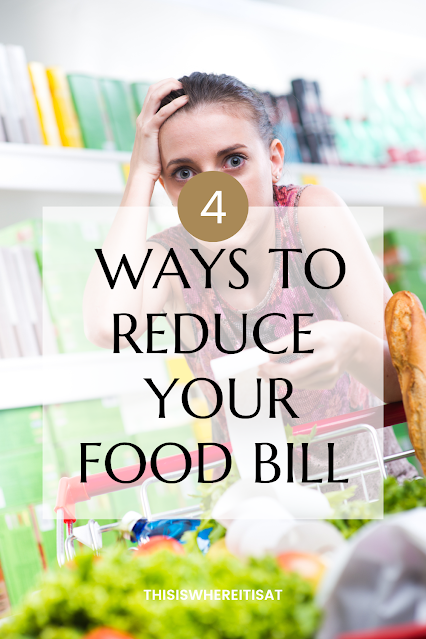Hey readers,
As times are getting tough you want to be looking for ways to cut down on your food bill then I have four good solid ways to reduce your bill that can make a massive difference.
If you have the cupboard space, bulk buying can be really cost-effective.
If you check the label of the product
you are buying, it will tell you the price per kilogram – and the big bags
almost always work out much cheaper. The deals can be even better if you can
buy from a wholesaler or bulk-buying specialist such as Costco – although bear
in mind these firms come with annual membership fees that you need to factor
in.
Start with items such as pasta and
tea bags – these have long shelf lives and are great for meal planning when
money is tight.
It’s also great for household essentials.
Tesco charges £8 for a pack of 36 Ariel All-in-1 washing pods. However, a pack
of 120 will cost you £20. That’s 22p each versus 17p each. Watch out though as
sometimes the smaller packs can work out cheaper, so always check.
2. Avoid fridge chaos.
A disorganised fridge can wreak havoc with your food's longevity,
flavour and nutritional value. The bottom shelf is the coldest, and ideal for
raw meat, fish and poultry. Store eggs on the middle shelf as they shouldn’t
get too cold. The top shelf is the warmest and has the most consistent
temperature, therefore is good for dairy and pre-prepared foods that don't
need cooking.
The doors are the warmest place in the fridge and best for foods
containing preservatives. Wrap cheese in a resealable bag and store it in a
plastic tub to prevent it from drying out.
Organising your cupboards and fridge will ensure that you know what you
already own, hopefully stopping you from buying duplicates and ending up with five
jars of the same thing. It’s a good idea to keep an up-to-date list of what is
in your freezer, as leftovers can often get pushed to the back and forgotten
about. You’re not saving money if you don’t eat the food.
3. Make the most out of loyalty schemes.
Many supermarkets have schemes in place providing incentives - such as
vouchers for money off your groceries - to incentivise shoppers to keep buying
at their stores.
For example, Sainsbury's runs its Nectar card reward scheme, where
customers receive points every time they shop in stores.
To get one Nectar point you need to spend £1 in Sainsbury’s store, or
you get one Nectar point for every litre of fuel purchased in Sainsbury’s fuel
stations. The scheme now offers personalised discounts based on customers'
shopping habits.
Morrisons' has recently revamped its loyalty scheme too. Instead of collecting points to get money off shopping, customers are
now offered instant rewards when they spend money in stores.
4. Sign up for food waste
apps.
Olio or Too Good To Go are great examples of apps
where you can source surplus food or heavily discounted food. They will
highlight restaurants or cafes nearby that have wasted food they want to sell,
with customers able to pick up “Magic Bags’ at a set price. Consumers can even
order in advance meaning expensive lunches in the office could be a thing of
the past.
What do you think about my points about reducing the food bill? Have I missed any good advice that you think is good? Love to hear your thoughts in the comment section down below.
Cheers for reading X









No comments